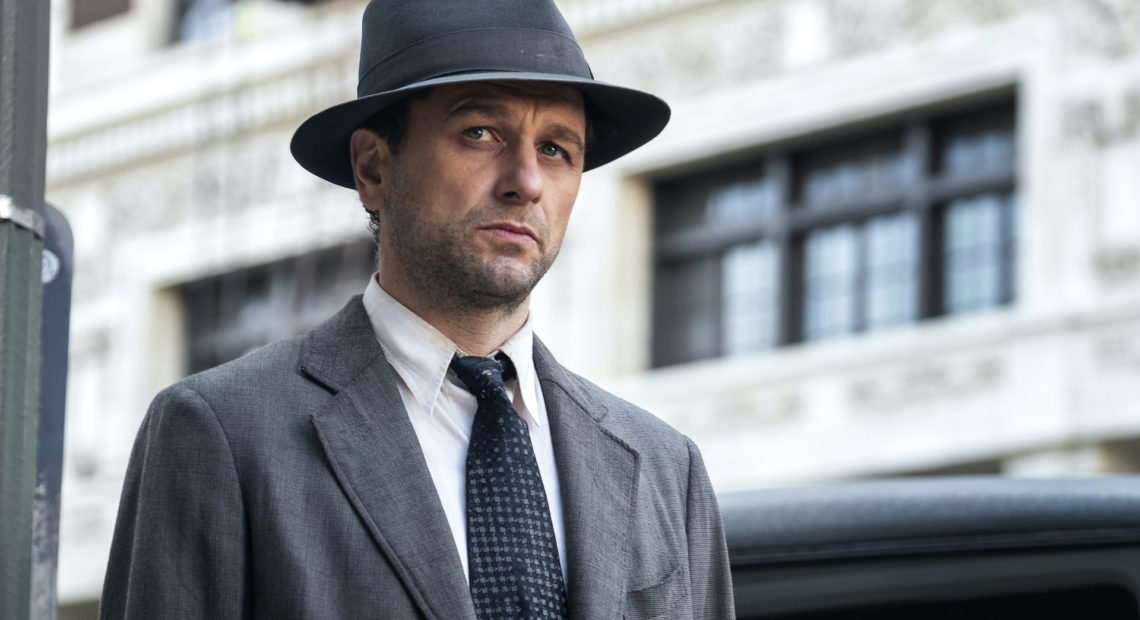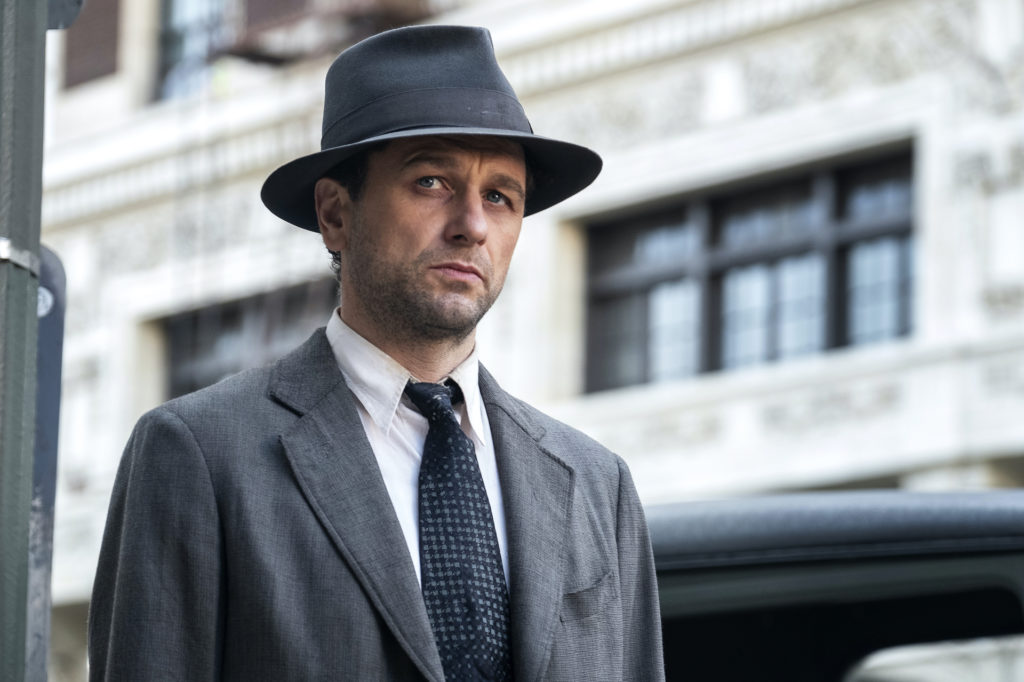
‘Perry Mason’ Reboot Is No Rerun: This Is A ‘Very Dark’ Take, Says Matthew Rhys
LISTEN
Audio PlayerBY SCOTT SIMON
When actor Matthew Rhys first found out about plans to reboot the legal drama Perry Mason his first question was: Why?
“Why would you? How can you?” says Rhys, who stars in the new HBO show.
This Perry Mason is no rerun of your grandfather’s Perry Mason from the 1960s. He’s not a sharply creased L.A. defense lawyer, with a voice that booms in wood-paneled courtrooms.
No, this is “a very dark Perry Mason to which I was instantly very attracted,” Rhys says.

Matthew Rhys plays Perry Mason in the new HBO reboot of the legal drama based on Erle Stanley Gardner’s detective stories. “To my mind, he makes a good private investigator because he doesn’t fit in in any way,” Rhys says. CREDIT: Merrick Morton/HBO
The series is based on Erle Stanley Gardner’s detective stories. Perry Mason is a seamy and slovenly private eye in 1932 Los Angeles who takes snaps of the private lives of stars to extort studio executives. Drunk, profane and unprincipled, he seems to be an unloving father and an uncaring lover — until a kidnapping case cracks his hard-boiled heart.
Interview Highlights
On Los Angeles in the 1930s
The rest of the United States was struggling enormously with the depression. And there was this boomtown … of show business emerging in Los Angeles. So there was this great divide. …
The way they set Mason within that — that he was this kind of leftover of a pioneer family that’s inherited this land with this encroaching monster of modernity that is the new L.A. — and he doesn’t quite fit in in a number of respects.
On being from Wales and finding the American detective “exotic”
The American hard-boiled [detective] — especially 1930s private eye — is something so exotic to me that I felt there was a number of times when I was flicking a cigarette or, you know, adjusting my fedora and trying not impersonate Humphrey Bogart. I was really living out some some childhood dreams.
On having to take on different accents for his roles
[In The Americans,] Philip Jennings’ American accent was a godsend and possibly the only time ever in my career where I would be playing a foreigner, trying to impersonate an American, which I’ve been trying to do diligently for some time. …
I’ve been fortunate to play [Welsh poet] Dylan Thomas many years ago in a movie, but the dichotomy of Thomas was Dylan was obsessed with the English spoken word, and his own father, who was an English teacher, professed to him that … he must almost lose his Welsh accent.
So Thomas would often listen to the BBC World Service and try to affect these very plummy English sounds. And I remember the first time I listened to Dylan Thomas on a vinyl recording … I was shocked because I imagined in my own naïve way that he would have this very broad Welsh accent. But it was an incredibly rounded English accent that he worked so hard to perfect.
On the way justice is depicted in the new Perry Mason
Life lives in the gray, regardless of how much belief we have — ultimately rose-tinted or not — in the word justice, and that [justice] will ultimately always be served. The course of justice and the way it comes about is often incredibly gray. And that’s certainly what I was attracted to in this project. … Mason, he isn’t this iconic servant of justice. He does a number of things in a very wrong, wrong way at times. And what I hope is that you’ll challenge where right and wrong lives.
Sophia Boyd and Martha Ann Overland produced and edited this interview for broadcast. Beth Novey adapted it for the web.















